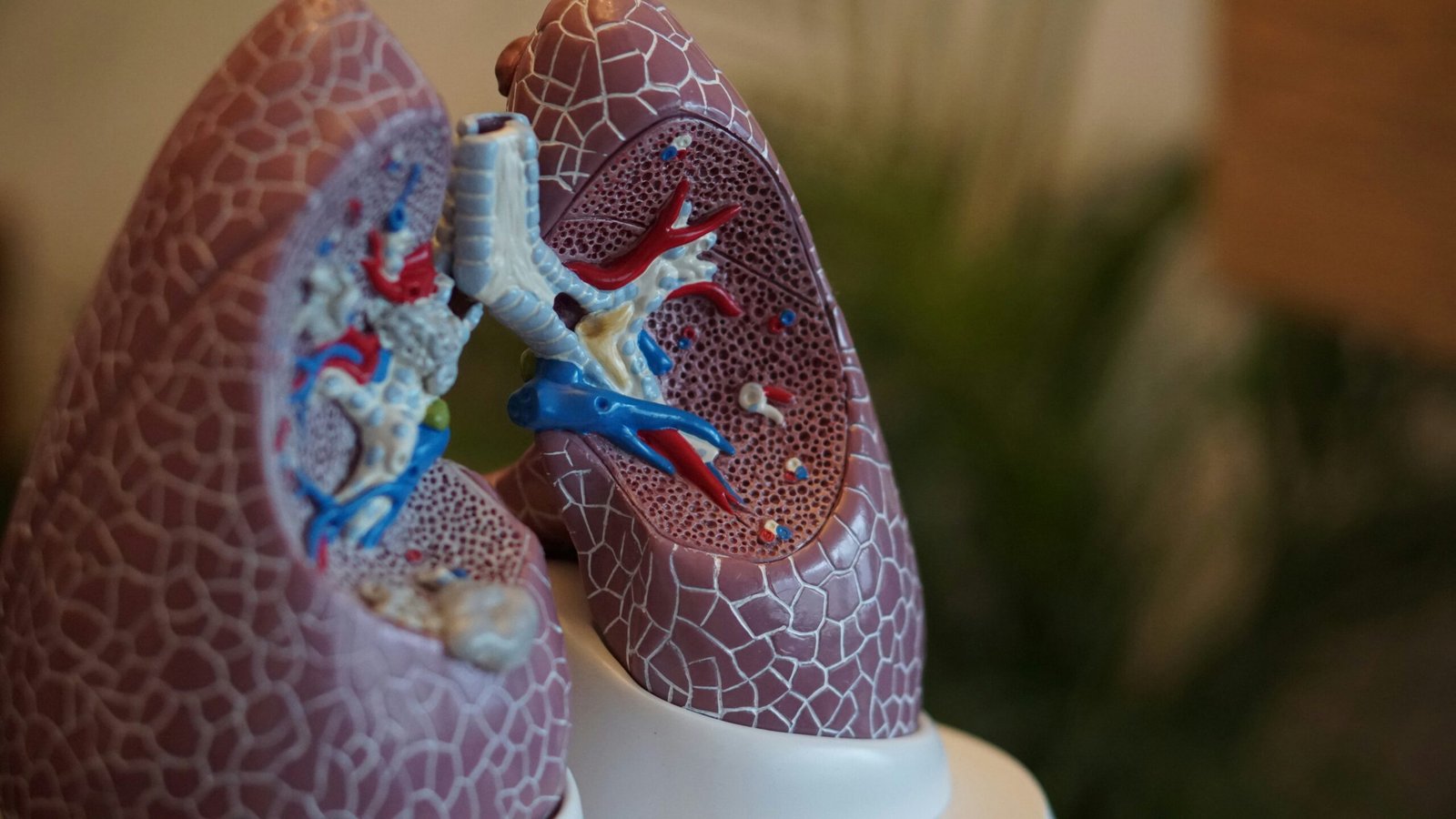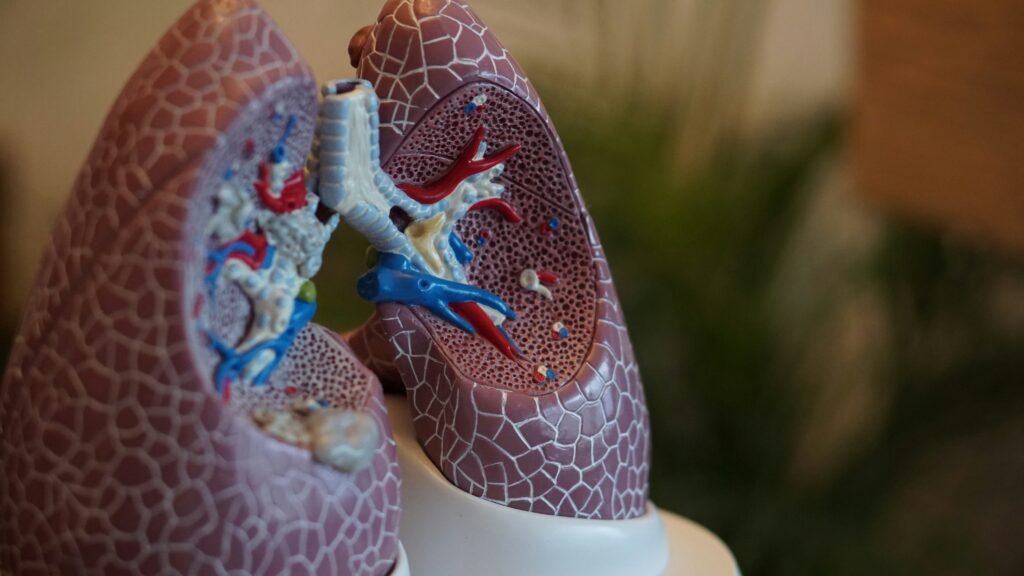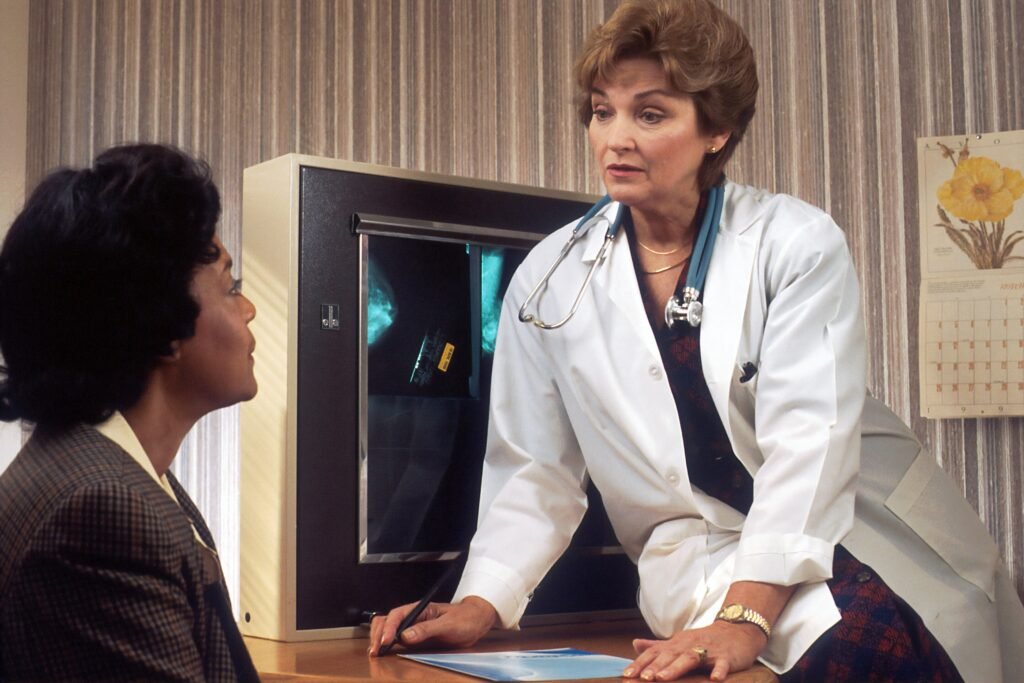
If you or someone you know has been diagnosed with COPD, then you’re probably wondering what steps should be taken to manage this condition effectively. Living with COPD can be challenging, but the good news is that there is one thing you can do that experts agree is the most important – quitting smoking. Smoking is the leading cause of COPD, and quitting can significantly improve your lung function and overall quality of life. In this article, we will explore why quitting smoking is crucial for individuals with COPD and discuss some helpful strategies to kick the habit for good.

Seek Medical Treatment
Visit a healthcare professional
The first and most important step in managing COPD is to seek medical treatment. It’s essential to visit a healthcare professional, such as a pulmonologist or respiratory therapist, who specializes in lung diseases. These experts will have the knowledge and experience to properly diagnose COPD and develop a personalized treatment plan based on your specific needs.
Get a proper diagnosis
Receiving a proper diagnosis is crucial when dealing with COPD. The healthcare professional will conduct various tests, such as spirometry, to measure your lung function and determine if you have COPD. This information is essential for creating an effective treatment plan tailored to your condition’s severity.
Follow the prescribed treatment plan
Once you have been diagnosed with COPD, it’s crucial to follow the treatment plan prescribed by your healthcare professional. This may include a combination of medications, pulmonary rehabilitation programs, and lifestyle changes. By adhering to the prescribed treatment plan, you can better manage your symptoms and improve your overall quality of life.
Quit Smoking
Understand the impact of smoking on COPD
If you have COPD, the number one thing you must do is quit smoking. Smoking is the leading cause of COPD, and continuing to smoke will only worsen your symptoms and accelerate the progression of the disease. Understanding the severe impact smoking has on COPD can serve as a powerful motivator to quit for good.
Seek help to quit smoking
Quitting smoking can be challenging, but it is not impossible. Seek help from healthcare professionals, support groups, or smoking cessation programs to increase your chances of successfully quitting. These resources can provide guidance, support, and strategies to overcome nicotine addiction and help you lead a smoke-free life.
Avoid exposure to secondhand smoke
In addition to quitting smoking, it’s vital to avoid exposure to secondhand smoke. Even being in close proximity to someone who smokes can aggravate your COPD symptoms. Make sure to create a smoke-free environment in your home and avoid places where smoking is allowed to minimize your exposure.
Manage Symptoms
Recognize the symptoms of COPD
Managing COPD involves recognizing the symptoms associated with the disease. These symptoms can include shortness of breath, chronic cough, wheezing, chest tightness, and frequent respiratory infections. By being aware of these symptoms, you can take appropriate actions to manage and alleviate them effectively.
Practice proper breathing techniques
Proper breathing techniques can significantly improve your ability to manage COPD symptoms. Techniques such as pursed-lip breathing and diaphragmatic breathing can help you control breathlessness, reduce anxiety, and conserve energy. Learning and practicing these techniques with the guidance of a healthcare professional can lead to better symptom management.
Use prescribed medication for symptom control
Taking prescribed medication is crucial for controlling and managing COPD symptoms. These medications may include bronchodilators, corticosteroids, and antibiotics to prevent and treat respiratory infections. It’s important to take your medication as prescribed by your healthcare professional and be aware of any potential side effects or interactions with other drugs.
Adopt a Healthy Lifestyle
Maintain a balanced diet
Adopting a healthy lifestyle is essential for managing COPD effectively. Start by maintaining a balanced diet that includes a variety of fruits, vegetables, whole grains, and lean proteins. Proper nutrition can help strengthen your immune system, maintain healthy weight, and provide you with the energy needed to manage your symptoms.
Stay physically active
Regular physical activity is beneficial for individuals with COPD. Engaging in activities such as walking, swimming, or cycling can improve lung function, increase muscle strength, and enhance overall endurance. Consult with your healthcare professional to develop a safe and suitable exercise program that meets your specific needs and abilities.
Avoid respiratory irritants
To manage COPD, it’s essential to avoid respiratory irritants that can exacerbate your symptoms. These irritants can include pollutants, chemicals, strong odors, and allergens. To minimize exposure, ensure proper ventilation in your home, use air filters if necessary, and stay away from environments where respiratory irritants are present.

Monitor and Track Progress
Regularly measure and record lung function
Monitoring your lung function regularly is crucial to track the progress of your COPD. Utilize tools like a peak flow meter or a spirometer to measure and record your lung function. This information can help you and your healthcare professional assess the effectiveness of your treatment plan and make any necessary adjustments.
Monitor symptoms and their severity
In addition to tracking lung function, it’s important to monitor your COPD symptoms and their severity. By keeping a symptom diary or using a mobile app, you can record any changes in symptoms, triggers, and their impact on your daily life. This information can provide valuable insights for your healthcare professional and help guide treatment decisions.
Keep a log of medication usage
Maintaining a log of your medication usage is essential to ensure you are following your prescribed treatment plan accurately. Record the dates, times, and dosages of the medications you take daily. This will help you keep track of your adherence to the medication regimen and allow your healthcare professional to review and adjust your prescriptions if needed.
Stay Hydrated
Drink plenty of water
Staying hydrated is important for individuals with COPD. Drink plenty of water throughout the day to maintain proper hydration levels. This can help thin mucus, ease coughing, and improve the effectiveness of your lungs. Aim to drink at least eight glasses of water per day, unless advised otherwise by your healthcare professional.
Avoid excessive caffeine and alcohol
While it’s important to stay hydrated, it’s equally important to avoid excessive consumption of caffeine and alcohol. These substances can dehydrate your body and worsen your COPD symptoms. Limit your intake of caffeinated beverages like coffee and avoid excessive alcohol consumption to maintain optimal hydration levels.
Use a humidifier if necessary
In dry environments, using a humidifier can help add moisture to the air you breathe, making it easier for your lungs to function. If you live in an area with low humidity or during the winter months when indoor heating can dry out the air, consider using a humidifier in your home. Make sure to clean and maintain the humidifier properly to prevent the growth of mold or bacteria.

Practice Respiratory Exercises
Engage in breathing exercises
Practicing respiratory exercises can significantly improve lung function and symptom management for individuals with COPD. Breathing exercises like deep breathing, pursed-lip breathing, and belly breathing can help strengthen respiratory muscles, increase lung capacity, and reduce breathlessness. Work with a respiratory therapist or attend pulmonary rehabilitation programs to learn and incorporate these exercises into your daily routine.
Use devices like a spirometer
Spirometers are handheld devices used to measure lung function and monitor the progress of your COPD. Your healthcare professional may recommend using a spirometer at home to regularly assess your lung function and track any changes. Following the provided instructions, perform spirometry tests as instructed by your healthcare professional to effectively manage your COPD.
Consider pulmonary rehabilitation programs
Pulmonary rehabilitation programs are comprehensive programs designed specifically for individuals with COPD. These programs combine exercise, education, and support to improve lung function, reduce symptoms, and enhance overall quality of life. Consider enrolling in a pulmonary rehabilitation program to gain valuable knowledge, receive personalized care, and connect with others facing similar challenges.
Stay Prepared for Emergencies
Create an emergency action plan
Having an emergency action plan in place is crucial for individuals with COPD. Work with your healthcare professional to create a detailed plan that includes steps to take during exacerbations, contact information for emergency services, and instructions on when to seek immediate medical help. Share this plan with your family members or caregivers to ensure everyone is prepared in case of an emergency.
Keep essential medications accessible
In case of an emergency, it’s important to have easy access to essential medications. Keep a well-stocked supply of your prescribed medications, such as bronchodilators and rescue inhalers, in a convenient and easily accessible location. Additionally, consider carrying a list of your medications, allergies, and emergency contact information in your wallet or purse for quick reference.
Know when to seek immediate medical help
Understanding when to seek immediate medical help is vital for individuals with COPD. If you experience severe shortness of breath, chest pain, bluish lips or fingernails, confusion, or have trouble speaking, it may be a sign of a medical emergency that requires immediate attention. Do not hesitate to call emergency services or go to the nearest emergency room if you suspect a medical emergency.
Join a Support Group
Connect with others facing similar challenges
Living with COPD can be emotionally challenging, and it can be helpful to connect with others who are facing similar experiences. Joining a support group allows you to interact with individuals who understand the daily struggles, provide empathy, and share coping strategies. These connections can provide a sense of camaraderie and emotional support in your journey with COPD.
Share experiences and coping strategies
Support groups provide a platform to share experiences and coping strategies with others living with COPD. In these groups, you can exchange tips and techniques for managing symptoms, discuss effective treatment options, and learn from the experiences of others. Sharing your own experiences can also help others in the group feel supported and understood.
Gain emotional support
Living with COPD can have a significant impact on your emotional well-being. Joining a support group can provide you with much-needed emotional support from people who truly understand what you’re going through. By sharing your fears, frustrations, and triumphs, you can receive validation, empathy, and encouragement. Remember, you are not alone in your COPD journey.
Regularly Visit Healthcare Professionals
Schedule regular check-ups
Regular check-ups with your healthcare professional are essential for effectively managing COPD. These appointments allow your healthcare professional to monitor your lung function, reassess your treatment plan, and make any necessary adjustments. By attending these check-ups as scheduled, you can stay on top of your COPD and receive the care you need.
Communicate any changes in symptoms or concerns
During your check-ups, make sure to communicate any changes in your symptoms or any concerns you may have. Your healthcare professional relies on this information to guide your treatment and provide appropriate care. Open and honest communication about your COPD journey is key to receiving personalized and effective treatment.
Ensure medication is up to date
As part of your regular check-ups, it’s important to ensure that your medication is up to date. Review your medication list with your healthcare professional and discuss any new medications, dosage adjustments, or potential side effects. This will help ensure that you are receiving the appropriate medications and that they are working effectively to manage your COPD.









